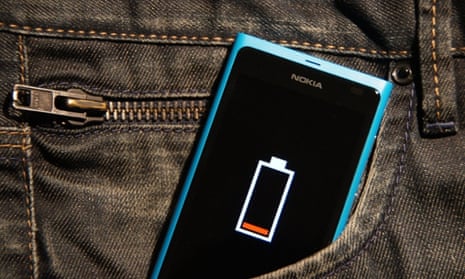Overheating, sluggish, running out of energy faster than usual? Have you noticed how it’s not just you that suffers in the heat, your smartphone does too? Don’t worry, you’re not imagining it, the heat really does make a difference.
Unlike people, phones can’t sweat, and while this may be good news for your pocket, it’s bad news for them. Without a way to cool themselves, phones suffer: the battery dies, the processor melts and the screen can crack.
Here’s why it happens, and what to do about it.
Why is my phone slower when it’s hot?
Processors are heat sensitive. The hotter they are, the slower they run - as they have to reduce the power usage to stop themselves overheating.
That means when a phone gets hot it becomes more sluggish. Because it’s taking longer to longer to do things, it in turn means it needs to stay awake longer, potentially drawing more electricity from the battery for a longer time and increasing the heat further.
Other components such as the GPS chip, the screen’s backlight and mobile data connection all generate heat too, which means the more you use a phone for mapping or other relatively intensive tasks the hotter it gets.
Why does my phone’s battery run out so much faster?
Batteries are small packs of chemicals that react to create electricity, which also creates heat. That’s not an issue in cooler climates, but when the heatwave starts the battery’s ability to keep cool, like the rest of the phone, is impaired.
A hot battery charges slower because charging it causes it to heat up. A battery’s thermal control system reduces the rate of charging to keep things at a safe level. If a battery hits a critical temperature it experiences thermal runaway, which like a nuclear meltdown can be explosive as experienced within Boeing 787 Dreamliner batteries.
Keeping a battery above 30C is bad for its health as its chemical components degrade. While short periods of heat are unlikely to cause issues, prolonged exposure to heat causes its capacity to decrease, which means shorter battery life. Keeping a battery fully charged and hot can be worse than repeated charges and discharges for its life.
Why did my screen crack when I left it in the car?
Heat can also do nasty things to the screen, and other bits and pieces of a phone. For instance, the fine liquid layers of a screen can swell under high heat, which means pixels can blow and glass can crack – leaving a phone within a hot glovebox on a sunny day is asking for trouble.
Why isn’t there an easy why to cool it?
While hot phones are only an issue for a few weeks a year in the UK, and rarely for air conditioning-using countries, smartphones suffer from overheating greatly in developing nations and those that don’t rely on electricity to keep them cool.
App developers have tried to help. A collection of apps designed to help a phone cool off is available for most platforms. Many work by temporarily giving the processor a timeout by limiting background tasks and stopping some apps.
A similar thing can be achieved by using the battery-saving modes on most smartphones, or by simply turning it off.
What can I do?
Most phones use their body panels as heat sinks to attempt to dissipate heat, which is why metal-backed phones such as the iPhone and HTC One feel hot. Storing a hot phone in a hot pocket against a hot body is a bad idea - keep it out and well ventilated.
A case can also inhibit a smartphone’s ability to rid itself of heat, remove the case –but then do try not to drop it.
If you’re using it in your car as a satnav, GPS can overheat a phone – stick it on the windscreen and use the windscreen airflow to cool it - also keep it in shade.
Processor intensive apps exacerbate the problem - unfortunately there’s no real solution but to stop using them.
The display’s backlight generates a lot of heat and sucks battery - turn down the backlight and set a shorter timeout.

Comments (…)
Sign in or create your Guardian account to join the discussion